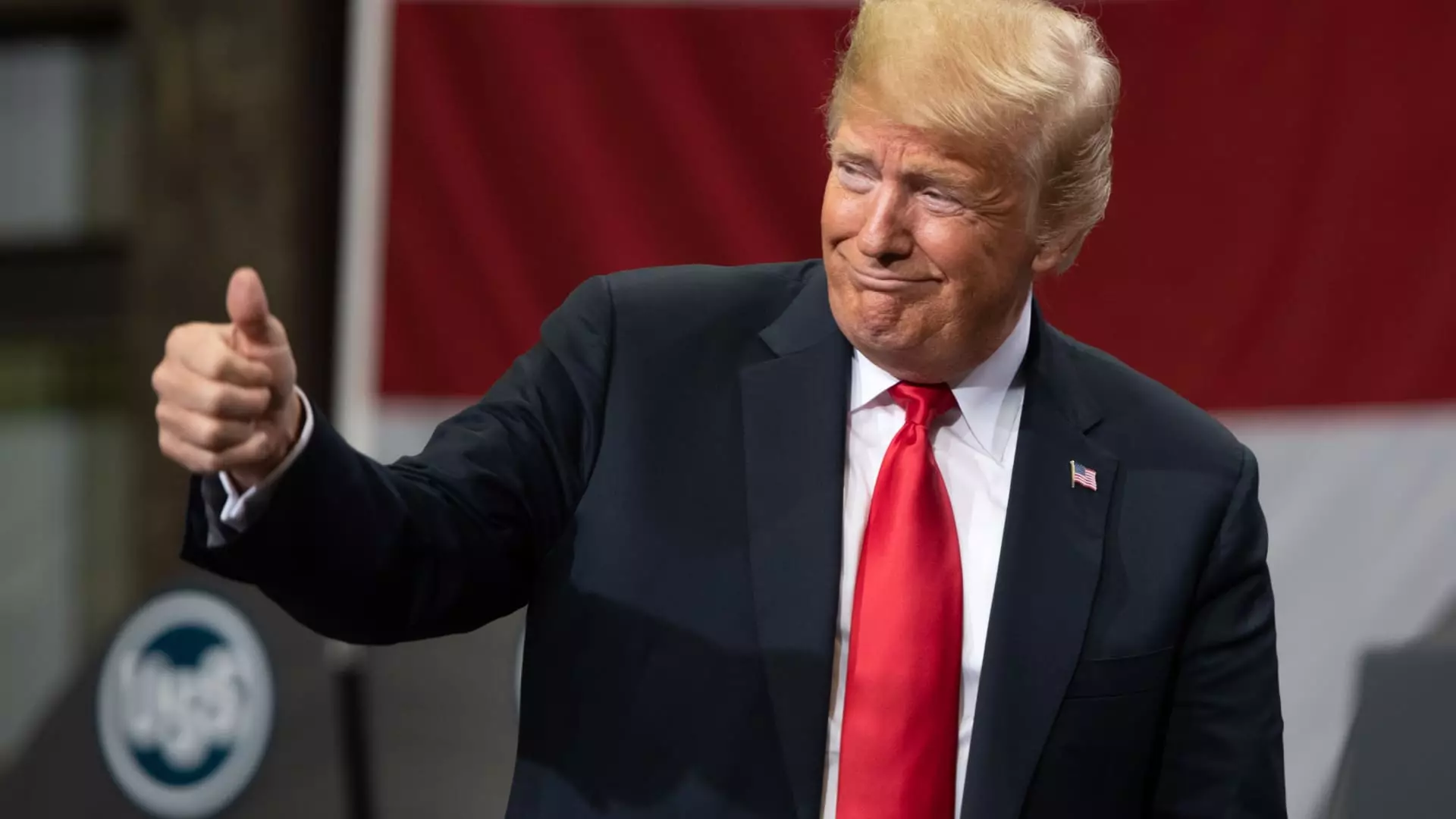In the tumultuous world of finance, the whims of political leaders can often send shockwaves through the market. Nowhere was this more apparent than on a recent Wednesday morning when former President Donald Trump’s bold declaration on social media sent stock prices skyrocketing. By stating, “THIS IS A GREAT TIME TO BUY!!!” he seemingly ignited a buying frenzy. Investors who acted swiftly had the chance to see their fortunes swell, but this scenario prompts a critical examination of the overall mechanism behind such dramatic market shifts.
In theory, Trump’s post provided an extraordinary opportunity for those who understood the power of social influence in the trading sphere. The mere mention of “buying now” led to astonishing gains across various indices, showcasing how susceptible financial markets are to the transient sentiments projected by influential figures. However, while some profited handsomely from their engagement, the reliance on celebrity endorsements risks disregarding fundamental investment principles. Is this really a sustainable strategy, or merely a speculative gamble?
Market Reactions: A Tale of Two Outcomes
Following Trump’s announcement about rolling back tariffs, the financial markets reacted like a coiled spring being released. For instance, the SPDR S&P 500 ETF Trust rose impressively, surging by 10.5%—the most dramatic single-day gain since 2008. This provided an enticing scenario for those who bought when Trump tweeted, but it’s crucial to question the volatilities attached to such transactions.
That being said, considerable profits could be garnered from the fluctuations experienced by Trump Media & Technology, which saw its stock price jump by over 21% on the day. But the elation felt by investors must be tempered with the realization that stocks are replete with uncertainty. Would these gains have materialized without the impulsive recommendation from a public figure? What of the investors who, entrapped in the frenzy, bought high and ended up on the wrong side of profit margins?
The Fine Line Between Leadership and Market Manipulation
The specter of market manipulation looms large over Trump’s tweeting habits. His assertions, often seen as whims, can resonate powerfully with retail investors, many of whom may lack the financial acumen to discern between strategic investments and mere speculation. Online platforms like WallStreetBets, where discussions range widely from financial advice to outright gambling, indicate a troubling norm—investors are increasingly looking to social media for guidance rather than doing their due diligence.
Skeptics and critics have pointed fingers, suggesting that Trump’s proclamations amount to little more than market manipulation. One vocal Redditor posed a question that encapsulates this concern succinctly: “Can you imagine the insider trading?” While there’s no evidence of impropriety on Trump’s part, the ethical implications of such public declarations remain deeply troubling. Investors need to recognize the difference between savvy trading and entrusting their financial future to the whims of influential figures.
The Shifting Nature of Stock Investment Culture
Another significant dimension to explore is the evolving culture of stock investment. In a time where meme stocks proliferate and trading platforms become more accessible, the traditional investor’s mindset appears to be waning. The reliance on authoritative figures to guide buying decisions is indicative of a broader cultural shift that could have long-lasting repercussions. Do we want to live in a society where investment decisions are swayed by 280-character tweets?
This phenomenon raises alarm bells regarding financial literacy and the potential for a readership that looks more to social validation than reputable financial insight. The enticing allure of quick fortunes, as evidenced by the recent stock surges, might lure many into engagements they’re not entirely prepared for.
Investors should consider the long-term ramifications of aligning their strategies with social media trends. Oftentimes, the greatest returns stem from informed decisions made independently of passing fads. It’s crucial for individuals to focus on sustainable investment practices rather than impulse-driven decisions sparked by charismatic leaders.
The intersection of politics, social media, and finance is fraught with complications that deserve more scrutiny. With the potential for both spectacular profits and significant losses hanging in the balance, investors must tread carefully while navigating this complex landscape.

